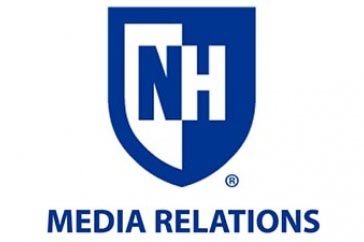New UNH Analysis Finds COVID-19 Fueled National Child Care Crisis

Editor’s note: On Wednesday, August 26, at 1 p.m. the authors of this brief will host a live webinar discussing their research and its findings. Please register to attend.
DURHAM, N.H.— Without additional support for the childcare sector, the national supply of childcare is likely to be dramatically reduced, according to new analysis by the Carsey School of Public Policy at the University of New Hampshire and the Federal Reserve Bank of Boston.
While the COVID-19 pandemic didn’t create the national childcare crisis, it has hastened and inflamed the situation and the shortfall in care options poses a challenge to economic recovery and creates a hardship for working parents of young children.
“In any attempt to rebuild and improve the child care industry, efforts to target inequity in access will need to be made explicit to avoid reinforcing old disparities and any efforts to fully engage families with child care and work will have to account for the new realities of pandemic life,” the researchers said. “Whether families are struggling with the losses of a difficult economy or the benefits of increased workplace flexibility, having the support of a quality, safe, affordable childcare slot is key to rebuilding the economy.”
The researchers also noted that estimating the extent of the child care shortfall is complicated by how much is unknown around demand, including parental assessments of health risks, new labor market realities of telework and high unemployment, and remote learning for older children.
The research was conducted by Jess Carson, research assistant professor with the Vulnerable Families Research Program at Carsey, and Beth Mattingly, policy fellow at Carsey and assistant vice president in the Regional and Community Outreach Department at the Federal Reserve Bank of Boston.
The Carsey School of Public Policy conducts research, leadership development, and engaged scholarship relevant to public policy. They address pressing challenges, striving for innovative, responsive, and equitable solutions at all levels of government and in the for-profit and nonprofit sectors.
As part of the Central bank of the United States, the Federal Reserve Bank of Boston works to promote sound growth and financial stability in New England and the nation. We contribute to communities, the region, and the nation by conducting economic research, participating in monetary policy-making, supervising certain financial institutions, providing financial services and payments, playing a leadership role in the payments industry, and supporting economic well-being in communities through a variety of efforts.
The University of New Hampshire inspires innovation and transforms lives in our state, nation and world. More than 16,000 students from all 50 states and 71 countries engage with an award-winning faculty in top-ranked programs in business, engineering, law, health and human services, liberal arts and the sciences across more than 200 programs of study. As one of the nation’s highest-performing research universities, UNH partners with NASA, NOAA, NSF and NIH, and receives more than $110 million in competitive external funding every year to further explore and define the frontiers of land, sea and space.
Latest News
-
June 18, 2024
-
June 18, 2024
-
May 17, 2024
-
May 14, 2024
-
May 7, 2024

















































